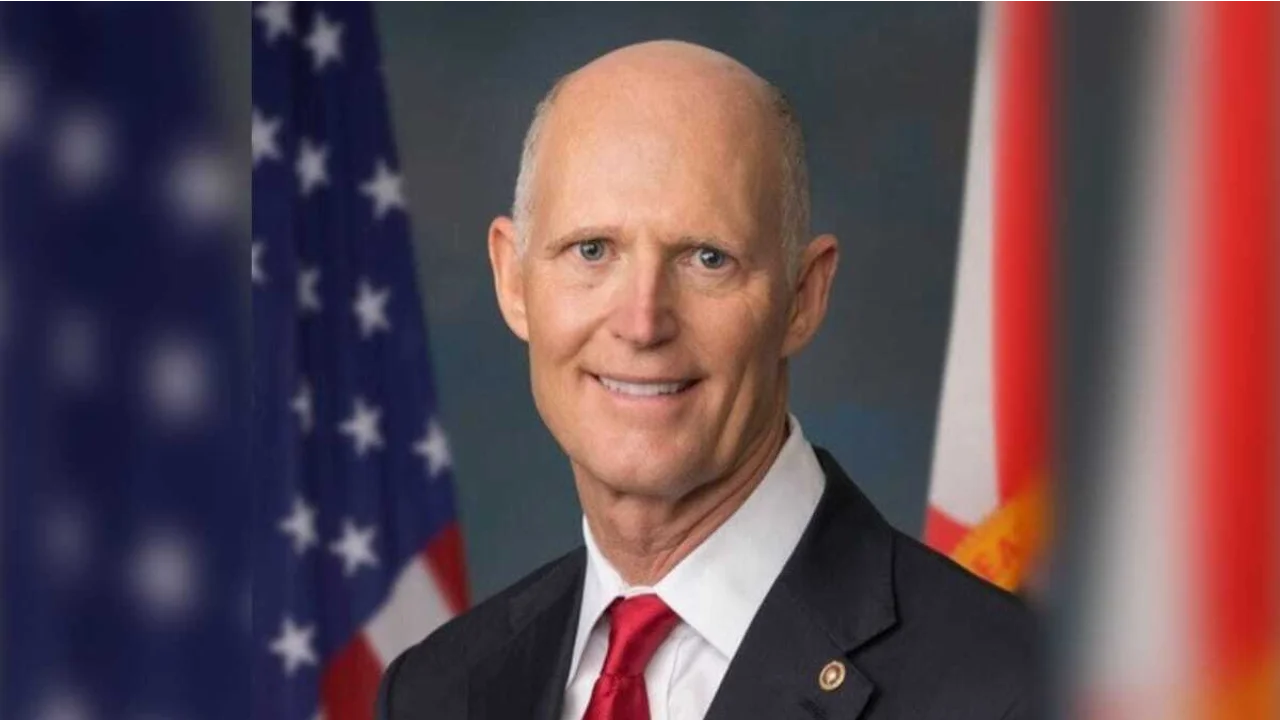At a recent hearing of the U.S. Senate Special Committee on Aging, Chairman Rick Scott raised concerns about the nation’s reliance on foreign-manufactured generic drugs, particularly those produced in China and India. The hearing, titled “Prescription for Trouble: Drug Safety, Supply Chains, and the Risk to Aging Americans,” examined vulnerabilities in the pharmaceutical supply chain that could impact drug safety for older Americans.
Expert witnesses included Peter Baker, former Food and Drug Administration (FDA) Inspector and president of Live Oak Quality Assurance; George Ball, PhD, associate professor at Indiana University’s Kelley School of Business; and Brandon Daniels, chief executive officer of Exiger.
Chairman Scott questioned whether the FDA is aware of manufacturing companies with ongoing problems and if it holds them accountable. He asked, “You mentioned that the bad players list is no secret and these bad companies continue to avoid any significant consequences. That’s telling me that the FDA knows which are the problem companies, but they aren’t being inspected frequently enough or are still being allowed to import drugs Does the FDA have a list of bad companies?”
Mr. Baker responded: “Yeah, that list exists… I could just look into the database and see…”
Chairman Scott continued: “So they’ve got a list…and there’s no consequences?”
Mr. Baker replied: “Very little consequences. When the FDA takes action, these companies just shift production to another facility in their network. It’s a cat-and-mouse game… If you’re caught breaking the law, as outlined in the regulations, you should be prevented from shipping products to the U.S.”
Baker also stressed how unannounced inspections are more effective at identifying violations: “Unannounced inspections have about a four-times greater chance of identifying a problem that’s going to cause harm to a human… That’s what the data shows. They’re very effective. So, investment in that area is worth the effort.”
Scott cited statistics showing higher risks associated with certain foreign-made generics: “Generic drugs manufactured in India have a 54% higher chance of an adverse event, including hospitalization, disability, and death compared to similar drugs made in the U.S.” Dr. Ball confirmed this information.
In further discussion about consumer choice based on quality differences between products from different countries:
Chairman Scott said: “So let's say you're going to buy two cars, if you knew if you bought one of them…you had a 54% chance of something bad happening to you, what would you do?”
Dr. Ball answered: “…if I knew the difference then I would spend the money to buy the higher quality product..”
Baker described issues such as fake laboratory results certifying products as pure without proper testing and shadow facilities funneling substandard medicines through compliant sites before shipment to America. He stated: “This testimony only addresses the tip of a massive iceberg... Following these experiences I have no doubt that adverse events including death happen on a daily basis here in the US as a result of substandard generic products from unregulated markets.”
He added concerns about lack of accountability for repeat offenders: “Shocking inspection reports continue to roll in on a monthly basis... Meanwhile those most vulnerable in our society taking these drugs have no idea... Personally if I had a choice I would never consume a drug product produced in an unregulated market.”
The hearing also addressed national security implications tied to dependency on Chinese pharmaceutical ingredients.
Chairman Scott asked: “Do we have our own source so that our military is never dependent on China?”
Mr. Daniels responded: “We do not…. It’s kind of like what we have in critical minerals and magnets where commercial markets have so deeply been usurped by China that we don’t have investment capital coming in to offset it…we have to make those same kinds of investments in our pharmaceutical supply chains.”
When asked if it would be safe for U.S. military personnel to use Chinese-made drugs:
Mr. Daniels said: “No sir…the People’s Liberation Army (PLA) is infused into Chinese economy…several organizations producing these active pharmaceutical agreement ingredients or KSMs are actually sponsored and funded by PLA-funded entities or directly by PLA…and make them essentially beholden not only to Chinese Communist Party (CCP), but also PLA.”
Scott then asked whether America’s healthcare system is currently dependent on China:
Mr. Daniels replied: “At moment? Yes sir.”
Senator McCormick discussed transparency regarding drug origins:
Senator McCormick asked about existing transparency for consumers regarding country-of-origin information for medicines’ ingredients.
Mr. Baker answered: "Transparency in supply chain as far as what patients know about where their medications are made is virtually non-existent...It’s complicated because there are many players...We would need risk-based approach where most critical step—for example aseptically filled injectable—would be labeled accordingly..."
The witnesses concluded by highlighting national security risks posed by over-reliance on adversarial countries like China or India.
Chairman Scott queried whether other critical medicines were similarly affected:
Mr. Daniels stated: "About 50% of our critical medicines fall into that category."
Scott followed up asking if this was indeed a national security risk:
Daniels replied unequivocally:“It 100% is.”
Scott also noted potential impacts if exports from China were restricted:
Daniels explained:“You’d see at least 50% antibiotics your kids access evaporate…next time one grandchildren gets strep throat or ear infection…I bet dollars donuts it’s made by Arabindo which is Indian manufacturer using Chinese KSMs APIs.”









